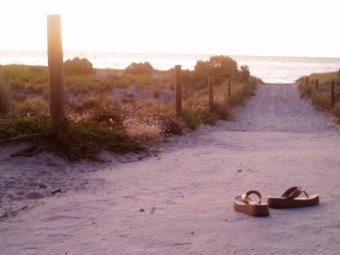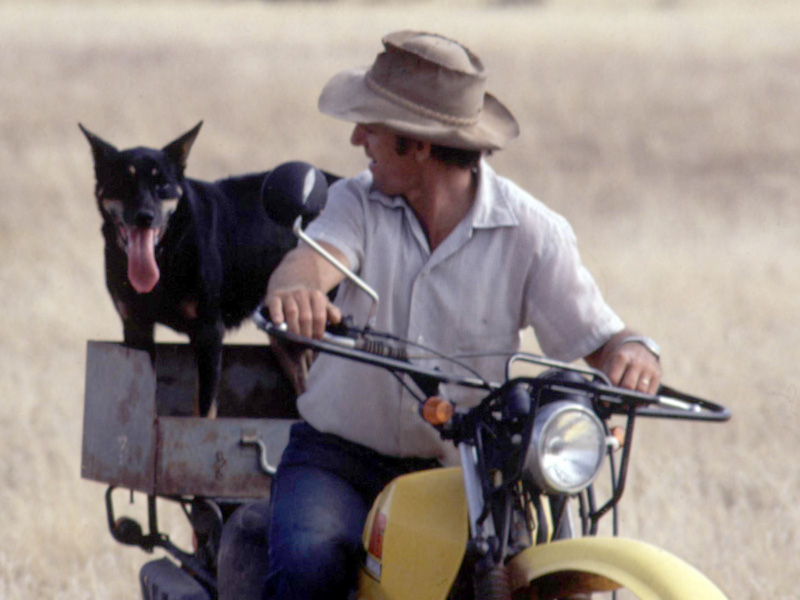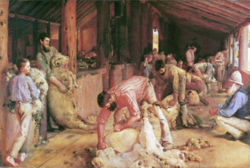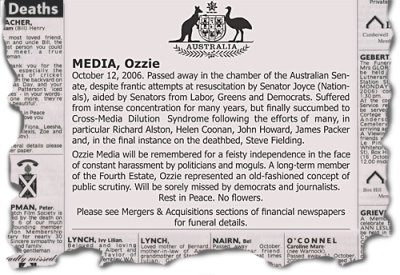Al-Hilaly on chastity and fidelity: How can I but blame the victim?
 So Sheik Taj al-Din al-Hilaly has been a ditz again:1
So Sheik Taj al-Din al-Hilaly has been a ditz again:1 ... In his Ramadan sermon Sheik Hilaly also alluded to the infamous Sydney gang rapes, suggesting the attackers were not entirely to blame.I checked the article on news.com.au's AdelaideNow section and there a certain Peter Minnie had commented:
While not specifically referring to the rapes, brutal attacks on four women for which a group of young Lebanese men received long jail sentences, the sheik said there were women who "sway suggestively" and wore make-up and immodest dress "and then you get a judge without mercy (rahma) and gives you 65 years." [Rapist Bilal Skaf initially got 55 years' jail for leading the 2000 Sydney southwest rapes, but later had the sentence reduced on appeal.]
"But the problem, but the problem all began with who?" he asked.
"If you take out uncovered meat and place it outside on the street, or in the garden or in the park, or in the backyard without a cover, and the cats come and eat it ... whose fault is it, the cats' or the uncovered meat?
"The uncovered meat is the problem." (source)
Wake up people the Sheik comments were not defending these animals but [pointing out] something that is blatantly obvious of what is always the fear we hold as parents of teenage daughters who are caught up in these new "trashy" dress sense that unfortunately is sweeping the western world. (source)So much for the widespread criticism of the Sheik's remarks – by both muslims and non-muslims. It looks like his comments got through to some fundamentalist loose in this city! No doubt there are a small minority of AFL footy players who also understand his comments since they too feel that the mere act of a women dressing in skimpy clothing is equivalent to her consenting to have sex with him.
By the way, I imagine if meat covered with a headscarf was put outside the cats would still come, rip off the covering and eat the meat anyway. Animal nature is like that. The ability to rise above that kind of 'basic instinct' behaviour and consider the basic impact on society before we act is what makes us human. Enough stating the obvious though.
 It made me wonder... if you wanted to make a sermon criticising non-conformance to a ultra-modest dress code, how could you do it without making some kind of controversial statement? It must be almost impossible. What is the purpose of covering most of the body in really hot countries apart from keeping out dust and avoiding sunburn? Of course it is related to helping ensure chastity and fidelty – for both men and women. So therefore criticising someone who doesn't cover up properly is always going to seem like you're justifying the actions of someone who rapes or sexually harasses them – again regardless of whether the harasser is male or female but traditionally I imagine the harasser was male.
It made me wonder... if you wanted to make a sermon criticising non-conformance to a ultra-modest dress code, how could you do it without making some kind of controversial statement? It must be almost impossible. What is the purpose of covering most of the body in really hot countries apart from keeping out dust and avoiding sunburn? Of course it is related to helping ensure chastity and fidelty – for both men and women. So therefore criticising someone who doesn't cover up properly is always going to seem like you're justifying the actions of someone who rapes or sexually harasses them – again regardless of whether the harasser is male or female but traditionally I imagine the harasser was male.Take note oh-so-diplomatic henchman Keysar Trad, I think I've just made a much better defence for the Sheik than you did. Perhaps you could also suggest to the Sheik to make up for his blunder by preaching next week about exercising control against basic instincts that are unethical or hurt society, in the same way a well-trained cat won't eat the most delicious meat put in front until he's given permission.
Cat image courtesy of Hot Athens Cat Spot
Categorised as: society
Technorati Tags: Taj El-Din Al-Hilali, Sheik Taj Din al-Hilaly, blame the victim, rape, chastity, fidelity, hijab, Islam, Keysar Trad, sermon, ethics, morality, sexual harassment








